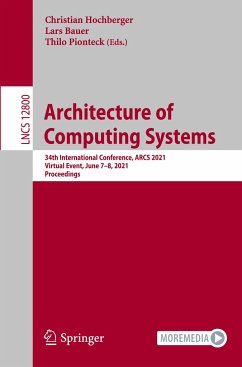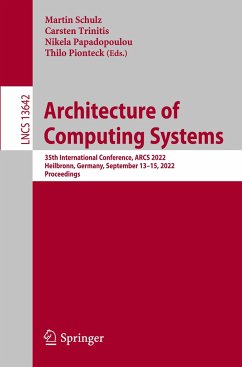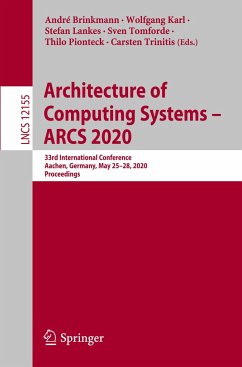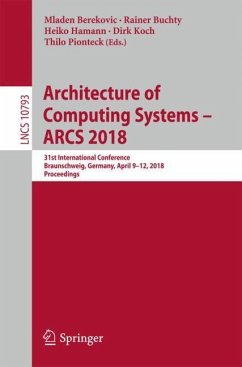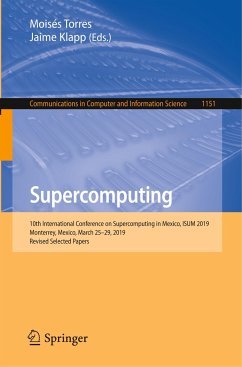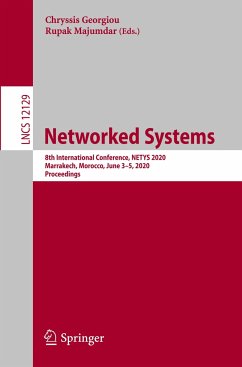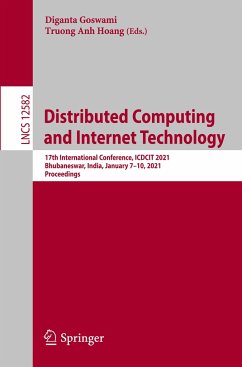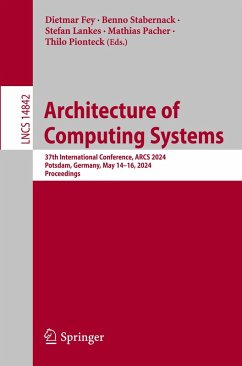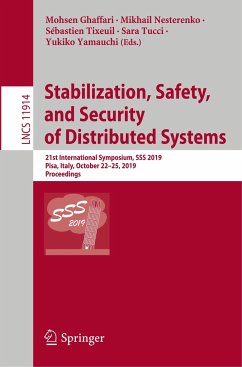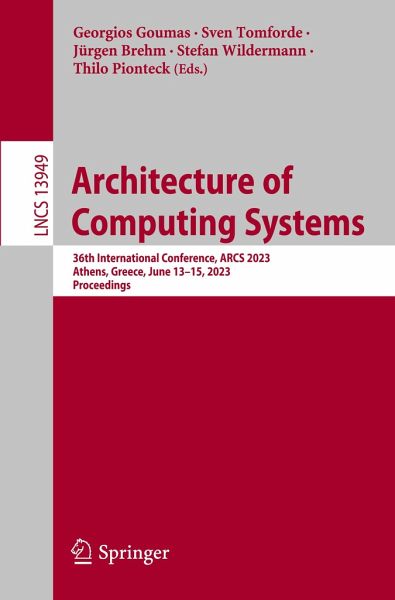
Architecture of Computing Systems
36th International Conference, ARCS 2023, Athens, Greece, June 13-15, 2023, Proceedings
Herausgegeben: Goumas, Georgios; Tomforde, Sven; Brehm, Jürgen; Wildermann, Stefan; Pionteck, Thilo

PAYBACK Punkte
25 °P sammeln!
T his book constitutes the proceedings of the 36th International Conference on Architecture of Computing Systems, ARCS 2023, which took place in Athens, Greece, in June 2023.The 18 full papers in this volume were carefully reviewed and selected from 35 submissions.ARCS provides a platform covering newly emerging and cross-cutting topics, such as autonomous and ubiquitous systems, reconfigurable computing and acceleration, neural networks and artificial intelligence. The selected papers cover a variety of topics from the ARCS core domains, including energy efficiency, applied machine learning, ...
T his book constitutes the proceedings of the 36th International Conference on Architecture of Computing Systems, ARCS 2023, which took place in Athens, Greece, in June 2023.
The 18 full papers in this volume were carefully reviewed and selected from 35 submissions.
ARCS provides a platform covering newly emerging and cross-cutting topics, such as autonomous and ubiquitous systems, reconfigurable computing and acceleration, neural networks and artificial intelligence. The selected papers cover a variety of topics from the ARCS core domains, including energy efficiency, applied machine learning, hardware and software system security, reliable and fault-tolerant systems and organic computing.
Back to top
The 18 full papers in this volume were carefully reviewed and selected from 35 submissions.
ARCS provides a platform covering newly emerging and cross-cutting topics, such as autonomous and ubiquitous systems, reconfigurable computing and acceleration, neural networks and artificial intelligence. The selected papers cover a variety of topics from the ARCS core domains, including energy efficiency, applied machine learning, hardware and software system security, reliable and fault-tolerant systems and organic computing.
Back to top





